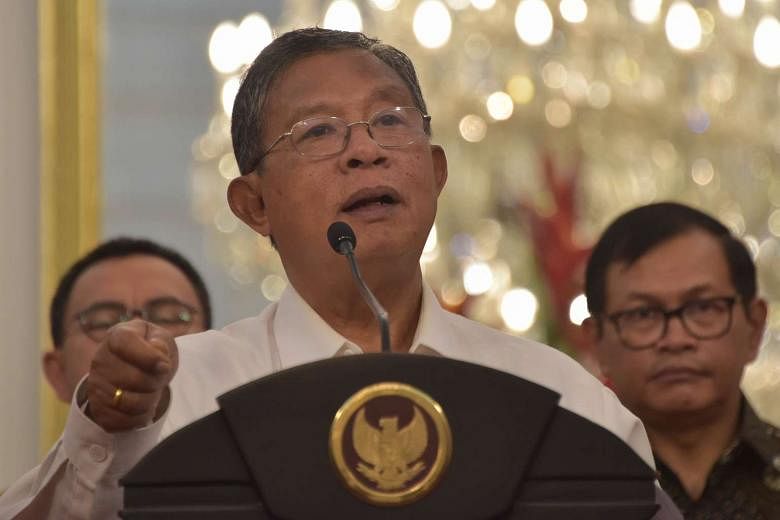JAKARTA (AFP) - Indonesia on Tuesday introduced more stimulus measures to woo desperately needed investment, in its latest bid to boost the sliding rupiah and breathe new life into the slowing economy.
It was the second time this month that Southeast Asia's top economy has unveiled steps to battle a sharp slowdown, as it comes under pressure with other emerging markets due to a strengthening US economy and turmoil in China.
"We are making (investing in Indonesia) as attractive as possible," said Chief Economics Minister Darmin Nasution, announcing the latest measures along with several other ministers. "We must fix, simplify, make it cheaper." New measures announced Tuesday included slashing the time taken to process investment permits from at least eight days to just three hours, with processing for permits in mining and geothermal projects in forested areas to be cut from up to four years to about 15 days.
To keep US dollars in the country, the government said it was cutting taxes for exporters who deposit their foreign exchange revenue in the country or convert it to rupiah, which should make it more attractive than depositing funds in countries such as neighbouring Singapore, Finance Minister Bambang Brodjonegoro said.
President Joko Widodo, who has been in office for almost a year, is faced with a dire economic situation.
The rupiah has plunged about 20 per cent against the US dollar this year, while the economy is forecast to grow less than five percent in 2015, its slowest pace in six years.
While many of the challenges facing Indonesia are blamed on global turmoil, the president must also contend with many domestic problems hampering the economy - a complex bureaucracy, rickety infrastructure and confusing investment policies.
The World Bank ranked Indonesia 114th in its annual "ease of doing business" survey this year.
The first stimulus package, which included such measures as tax breaks and attempts to simplify confusing regulations seen as a drag on business, failed to boost the market and rupiah.
Economists welcomed the new policies but said they would not be a silver bullet.
"This is quite a good move from the government," said Josua Pardede, an economist from Indonesia's Bank Permata.
"But the market hopes the government can do more to build confidence for portfolio investment and to boost slumping domestic consumption."

